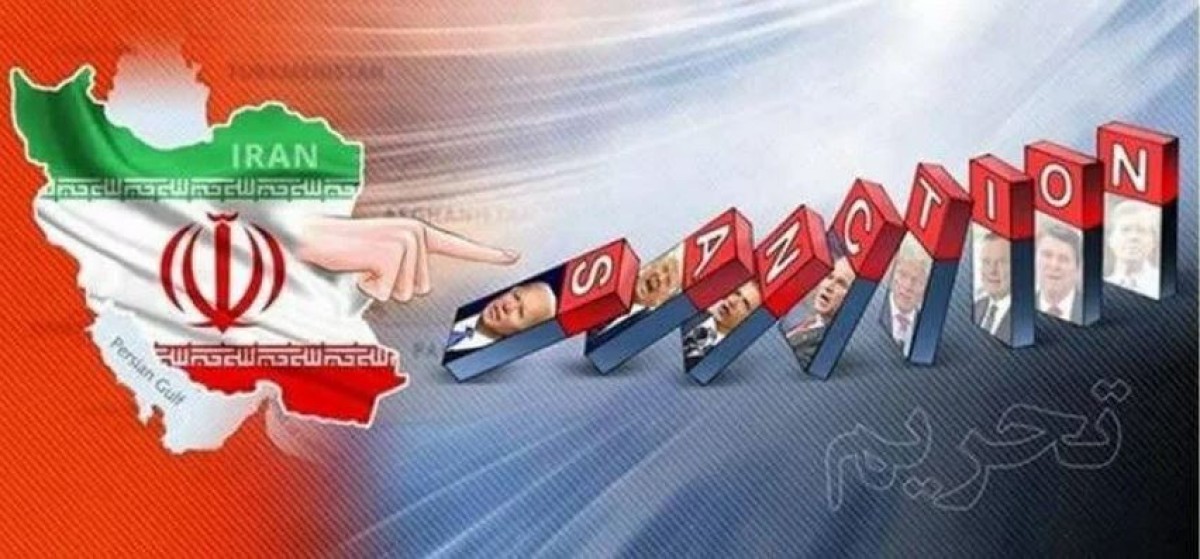 165
165
The American Sanctions Epidemic: An Instrument of Imperial Oppression
The American Sanctions Epidemic: An Instrument of Imperial Oppression
By: H. Zaïm-Bashi
A defining feature of American foreign policy is the relentless application of sanctions by its legislators and presidents to pursue political and economic objectives. This recourse to sanctions has escalated to such an extent that scholars of international relations now refer to it as a "sanctions epidemic" or "sanctions madness."
The pervasive role of sanctions in U.S. foreign policy has been further entrenched by the Israeli regime, which has established powerful lobbies to influence American legislators, ensuring the imposition of extensive sanctions on nations that resist its crimes and ambitions. America's addiction to sanctions is so rampant that, according to the Washington Post, the United States imposes sanctions at three times the rate of any other country or international organization, targeting a third of all nations with various forms of financial penalties on individuals, properties, or organizations.
This unbridled application of economic warfare raises a critical question: Why does America so fervently deploy sanctions? Officially, the United States justifies its sanctions by claiming to target countries that support terrorism or violate human rights. However, the truth is more insidious. Sanctions are wielded against nations that pose a threat to U.S. interests, including those with trade practices deemed unfavorable to America. The real objectives of American sanctions include coercing undesirable behavior, safeguarding national security, altering policies, supporting allies, and attracting international attention. As of 2024, the United States maintains comprehensive sanctions programs against Cuba, North Korea, Iran, Russia, and Syria, alongside numerous other programs targeting individuals and entities linked to specific political crises or behaviors perceived as suspicious by American standards. The Office of Foreign Assets Control (OFAC) routinely blacklists over twelve thousand individuals, businesses, and groups—collectively known as Specially Designated Nationals (SDNs)—prohibiting them from engaging in business.
Under President Joe Biden, OFAC has sanctioned thousands of individuals and companies from multiple countries in connection with Russia's war in Ukraine. The consequences of these sanctions are profound and multifaceted, affecting the economic, social, and political conditions of targeted countries in various ways. Among the detrimental effects are reduced exports and imports, supply chain disruptions, diminished foreign investment, rising unemployment, public service breakdowns, soaring prices and inflation, and the weakening of national currencies and political systems. An increasing body of evidence reveals that broad, unilateral sanctions often result in the death or severe injury of innocent civilians globally. Empirical data shows that economic sanctions gravely harm civilian populations. They stifle economic growth, induce stagnation, and sometimes prolong recessions.
Sanctions obstruct access to essential goods like food, energy, and medicine, and they hinder humanitarian aid, leading to poverty, hunger, disease, and a high number of preventable deaths. For example, when the International Monetary Fund issued $650 billion in special drawing rights to support the global economy in 2021, U.S. sanctions on many countries' central banks prevented them from utilizing their share. The underlying goal of American sanctions is to advance its colonial and aggressive interests, such as supporting the Israeli regime and imposing sanctions on countries that aid the defenseless and oppressed people of Palestine. This has exacerbated the famine crisis and the shortage of health and medical equipment in occupied Palestine, claiming the lives of many women and children.
Similarly, in Yemen, Syria, and various African nations, the deleterious effects of sanctions on food and health security have been starkly evident in recent years. For instance, recent studies indicate that U.S. sanctions against Venezuela have resulted in tens of thousands of deaths in a single year. Likewise, sanctions on North Korea have caused the deaths of approximately 4,000 civilians in 2018 alone. These catastrophic economic and human consequences drive civilians to seek better lives elsewhere, including in the United States. This link between sanctions and migration has been highlighted by leading economists, members of Congress, and foreign leaders as a burgeoning challenge for the United States itself. In conclusion, while sanctions are purportedly imposed to alter behavior or policies, they predominantly inflict profound economic and social suffering on the populations of the targeted nations.
The American sanctions regime, devoid of effective deterrent value, has wrought havoc on the lives of innocent people, particularly affecting food security and precipitating famine in embargoed countries. By restricting access to food and agricultural supplies and crippling the economies of sanctioned nations, American sanctions have exacerbated the plight of the most vulnerable, revealing their true nature as instruments of imperial domination.
 165
165
Comment
Post a comment for this article